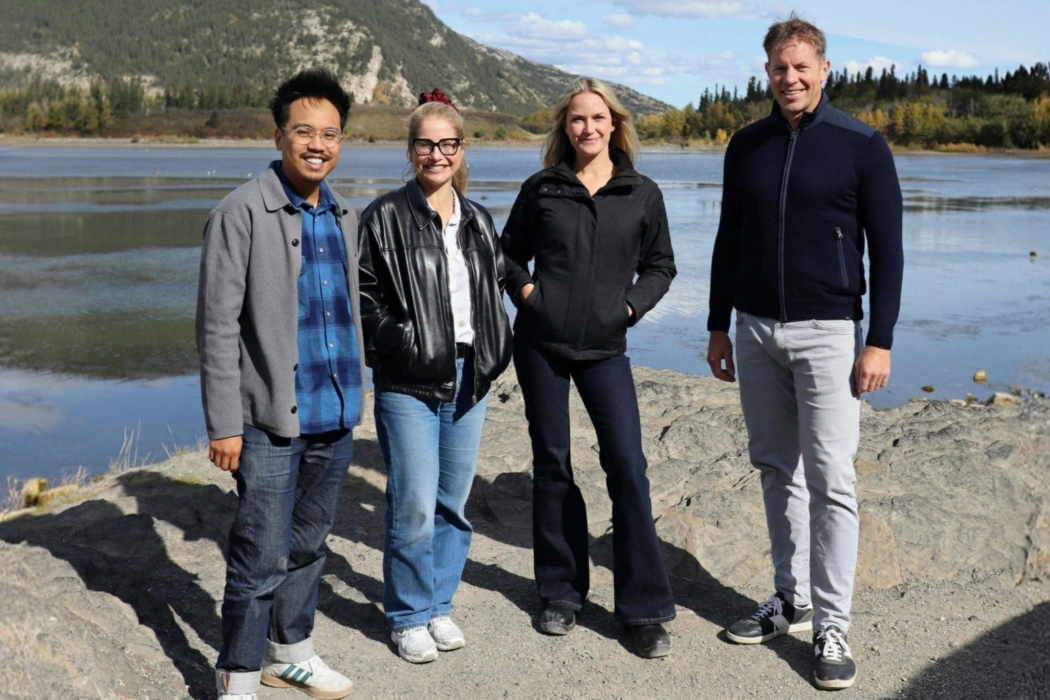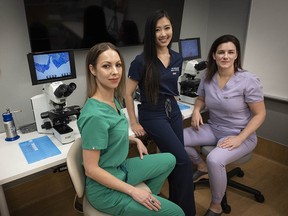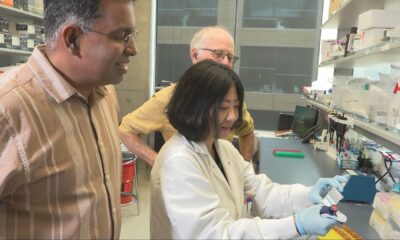Science
Former Deep Sky Executive Launches Startup to Decarbonize Cement

Phil De Luna, the former chief science and commercial officer at Deep Sky, has co-founded a new startup, **Cura**, aimed at decarbonizing the cement industry. Joining him are **Sabrina Scott**, a researcher from the **University of British Columbia (UBC)**, and **Erin Bobicki**, co-founder and former chief technology officer of **Aurora Hydrogen**. This innovative venture seeks to tackle the significant carbon emissions associated with cement production, which currently accounts for approximately **eight percent** of global carbon dioxide (CO2) emissions.
Cement production traditionally involves heating limestone, or calcium carbonate, at high temperatures, a process that results in substantial CO2 emissions. **Cura** is developing an electrochemical technology that captures CO2 from limestone using electricity, rather than fossil fuels. Bobicki, now the CEO of Cura, describes the process as “pre-calcination carbon capture,” highlighting its potential to reduce emissions effectively while also cutting costs.
Innovative Technology and Goals
The startup claims that its approach could lead to a reduction in CO2 emissions from cement production by up to **85 percent**. Bobicki emphasized that Cura’s technology could be cost-competitive with conventional cement production, unlike many existing alternatives, which typically require a green premium. The company has successfully scaled its technology in the lab to a prototype stage and now plans to build a **100-tonne per year pilot facility** in either British Columbia or Alberta within the next **12 to 16 months**. Additionally, Cura aims to launch a **10,000-tonne per year demonstration plant** within three years and to implement its technology at a large-scale cement facility within the next five years.
Cura has already established partnerships with an international infrastructure developer to test and potentially deploy its cement in large-scale projects. The team is actively engaging with cement manufacturers to pilot its technology, aligning with its vision of integrating its solutions directly into cement production processes.
Leadership and Market Challenges
De Luna’s transition from Deep Sky to Cura reflects his ambition to create a company focused on addressing climate change through innovative solutions. He left Deep Sky earlier this summer, emphasizing that his decision was not a reflection of his belief in carbon capture technologies, but rather a desire to lead a venture that directly addresses the cement industry’s carbon footprint.
While acknowledging the crowded market for direct air capture technologies, De Luna remains optimistic about the role of carbon capture in achieving Canada’s net-zero emissions target by **2050**. He noted that the current revenue model for direct air capture predominantly relies on carbon credits, which have become increasingly challenging to sell. Despite these hurdles, he believes that both emission reduction and carbon removal are crucial components in combating climate change.
Cura’s approach may play a vital role in supporting Canada’s infrastructure projects, particularly as the country seeks to advance its energy and transportation initiatives. De Luna pointed out that with the Canadian government actively working to expedite approval for major projects, there is a clear opportunity for Cura to fill a significant gap in the market.
As the global push for sustainable practices intensifies, Cura stands poised to contribute to a cleaner future by revolutionizing the cement industry, a critical sector in the fight against climate change.
-

 Politics1 week ago
Politics1 week agoSecwepemc First Nation Seeks Aboriginal Title Over Kamloops Area
-

 World4 months ago
World4 months agoScientists Unearth Ancient Antarctic Ice to Unlock Climate Secrets
-

 Entertainment4 months ago
Entertainment4 months agoTrump and McCormick to Announce $70 Billion Energy Investments
-

 Lifestyle4 months ago
Lifestyle4 months agoTransLink Launches Food Truck Program to Boost Revenue in Vancouver
-

 Science4 months ago
Science4 months agoFour Astronauts Return to Earth After International Space Station Mission
-

 Technology3 months ago
Technology3 months agoApple Notes Enhances Functionality with Markdown Support in macOS 26
-

 Top Stories1 month ago
Top Stories1 month agoUrgent Update: Fatal Crash on Highway 99 Claims Life of Pitt Meadows Man
-

 Sports4 months ago
Sports4 months agoSearch Underway for Missing Hunter Amid Hokkaido Bear Emergency
-

 Politics3 months ago
Politics3 months agoUkrainian Tennis Star Elina Svitolina Faces Death Threats Online
-

 Politics4 months ago
Politics4 months agoCarney Engages First Nations Leaders at Development Law Summit
-

 Technology4 months ago
Technology4 months agoFrosthaven Launches Early Access on July 31, 2025
-

 Top Stories3 weeks ago
Top Stories3 weeks agoFamily Remembers Beverley Rowbotham 25 Years After Murder





















